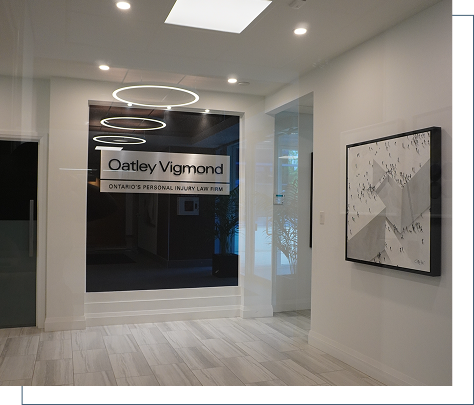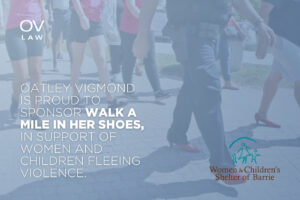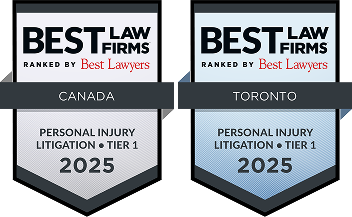Nursing Home Negligence Lawyers in Ontario
Serving all cities including Toronto, North York, Barrie, Hamilton, Sudbury and North Bay.
Who We Are
At Oatley Vigmond, we have decades of experience representing families across Ontario in claims against negligent nursing homes, long-term care facilities, and assisted living centres.
We understand the standards set by Ontario’s Fixing Long-Term Care Act, 2021 and related regulations, which require facilities to provide residents with safe, dignified, and adequate care. When these standards are breached, whether through neglect, abuse, or unsafe conditions, residents can suffer serious harm.
Our legal team takes a compassionate but relentless approach. We work closely with families, gather critical evidence, and consult medical experts to hold facilities, owners, and staff accountable.


Why You Need a Nursing Home Negligence Lawyer
Nursing home negligence cases are complex. They often involve overlapping areas of law, from personal injury and elder abuse statutes to provincial long-term care regulations. Facilities are usually backed by corporate insurers and legal teams whose goal is to minimize payouts and avoid liability.
Our lawyers handle every step:
- Investigating incidents thoroughly, including reviewing medical charts, care logs, and surveillance footage.
- Identifying violations of Ontario’s care standards, staffing requirements, and safety protocols.
- Working with healthcare and forensic experts to prove negligence and the impact on your loved one’s health.
- Managing all insurance negotiations and court procedures within Ontario’s strict limitation periods.
We understand the emotional toll these cases take on families. By trusting us with your case, you gain more than legal representation, you gain a committed advocate for your loved one’s dignity, safety, and recovery.
Types of Nursing Home Negligence Cases We Handle

Physical abuse or rough handling by staff

Neglect of basic needs (food, hydration, hygiene)

Bedsores (pressure ulcers) from lack of repositioning

Falls due to inadequate supervision or unsafe conditions
Medication errors or missed doses
Failure to provide timely medical care
Emotional abuse, intimidation, or isolation

Unsanitary conditions leading to infections
Injuries from unsafe equipment or mobility aids
FAQ for Home Negligence Lawyers
What Are The Most Common Injuries in Nursing Home Negligence Cases?
- Fractures and broken bones from preventable falls
- Head injuries, including concussions and traumatic brain injuries
- Bedsores and related infections (e.g., sepsis)
- Malnutrition and dehydration
- Worsening of existing medical conditions due to neglect
- Emotional trauma and psychological harm
- Wrongful death caused by abuse or lack of proper care
How Much Are Nursing Home Negligence Settlements?
Do I Really Need a Lawyer After Nursing Home Negligence?
Yes. These claims often require proving breaches of Ontario’s care standards and countering aggressive insurance company tactics. Without legal representation, it is difficult to gather the right evidence, meet procedural deadlines, or calculate full compensation. Our team ensures your case is built on solid legal and medical grounds.
- In Ontario, occupiers have a legal duty under the Occupiers’ Liability Act to keep their property reasonably safe for visitors.
- The standard of care applies to private, commercial, and public properties, including sidewalks, stores, and rental properties.
- Under Ontario’s Limitations Act, you generally have two years from the date of the injury to start a claim, though exceptions can apply.
- Contributory negligence rules under Ontario law can reduce but not necessarily eliminate compensation if you are found partially at fault.
- Evidence such as incident reports, witness statements, and maintenance records is critical to proving liability and damages in these cases.
- Insurance companies often rely on independent medical examinations (IMEs) to challenge the extent of your injuries or disability.
What If I Am Partially At Fault in an Nursing Home Negligence Case?
Under Ontario’s Negligence Act, even if a resident’s actions contributed to an incident, the facility can still be held liable if it failed in its duty of care. Compensation may be reduced proportionally to the assigned fault, but our lawyers work to minimize that percentage and protect your loved one’s rights.
Related Insights

Will I Be Assigned a Care Team for My Permanent Disabilities After Filing a Claim for an Accident?
If you or a loved one has suffered a serious injury in an accident, accessing the proper treatment is essential. A skilled, professional, and compassionate care team can ensure you

Oatley Vigmond Partners Recognized in the 2026 Edition of The Best Lawyers in Canada™ — Leading the Way in Car Accident Representation
Oatley Vigmond LLP is proud to announce that several of our lawyers have been recognized in the 2026 edition of The Best Lawyers in Canada™, reaffirming our position as one

Oatley Vigmond Personal Injury Lawyers Joins as Trail Blazing Sponsor for Walk a Mile in Her Shoes 2025
Oatley Vigmond Personal Injury Lawyers is proud to announce its sponsorship of the 2025 Walk a Mile in Her Shoes event, hosted by the Women & Children’s Shelter of Barrie.
Get A Free Consultation
If you or a loved one has suffered a nursing home negligence you don’t have to face this alone. Our team is here to help you rebuild.






